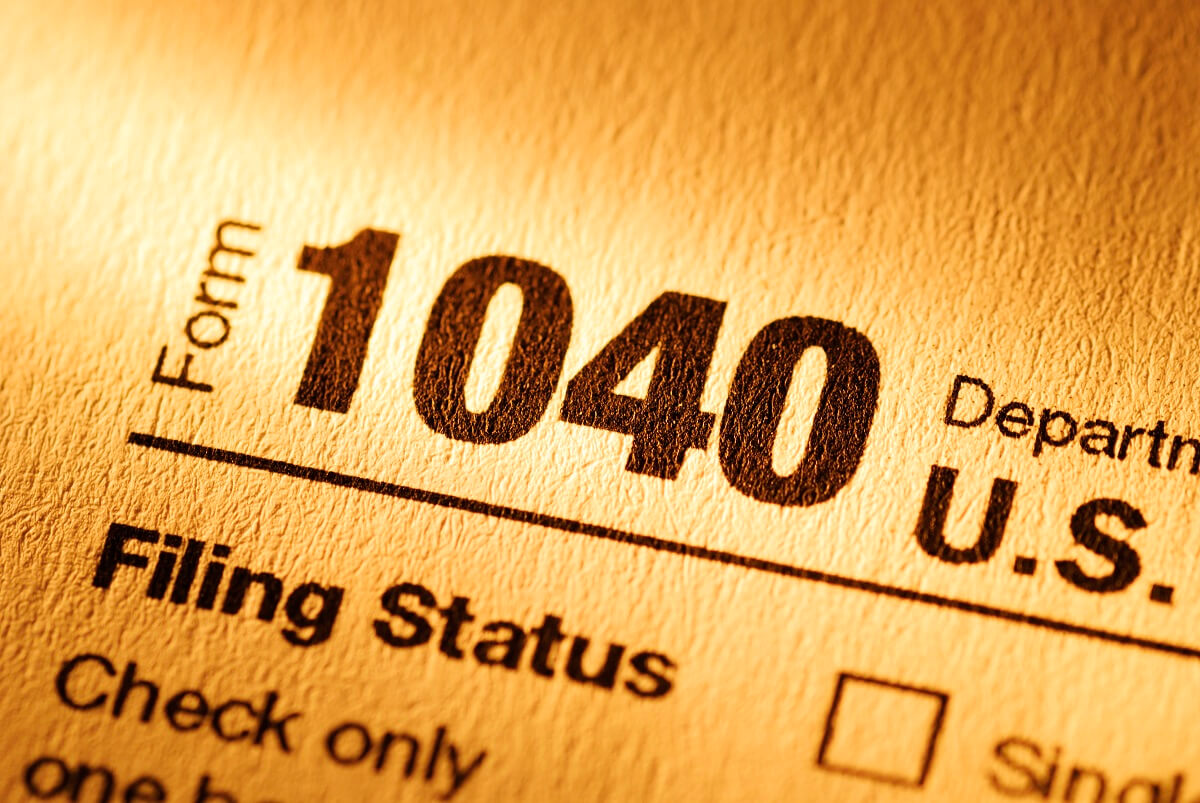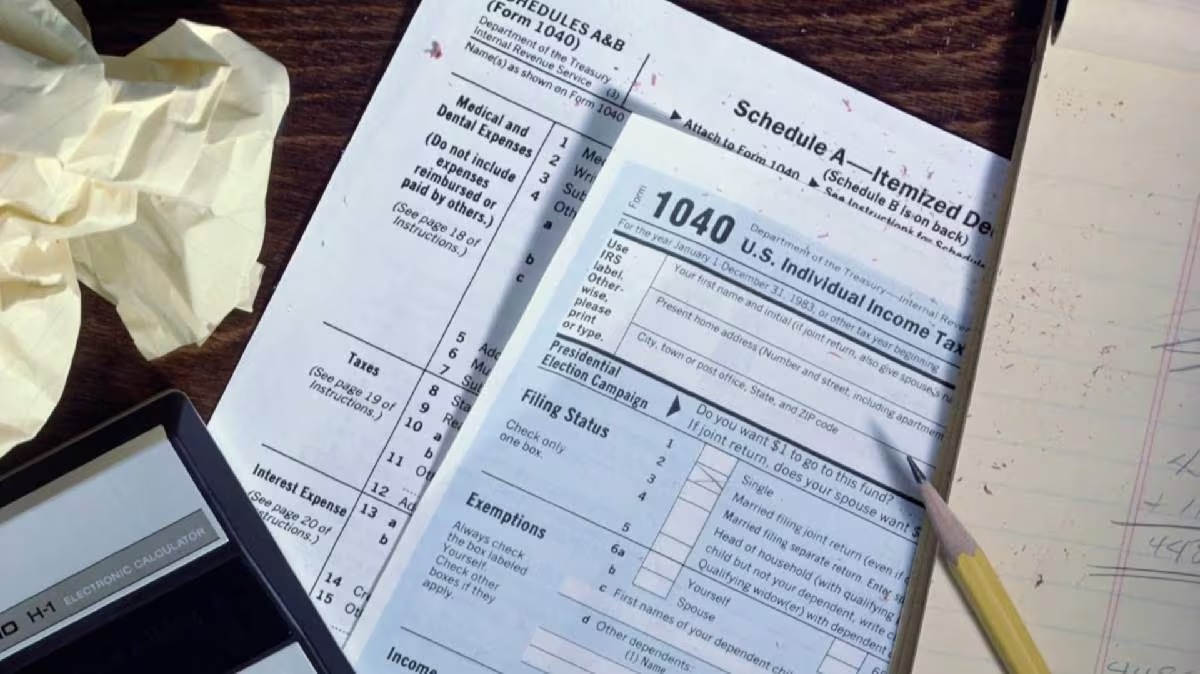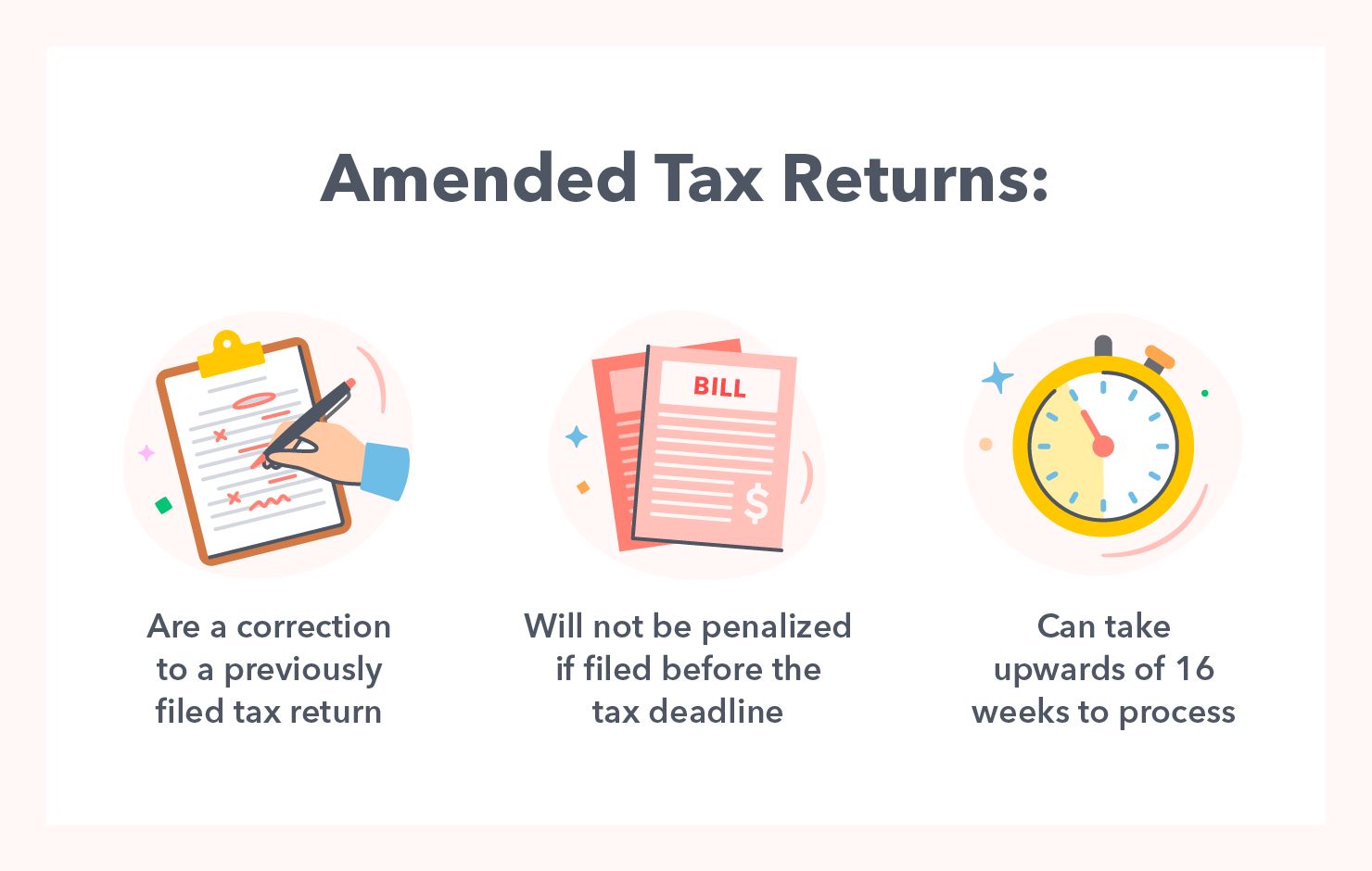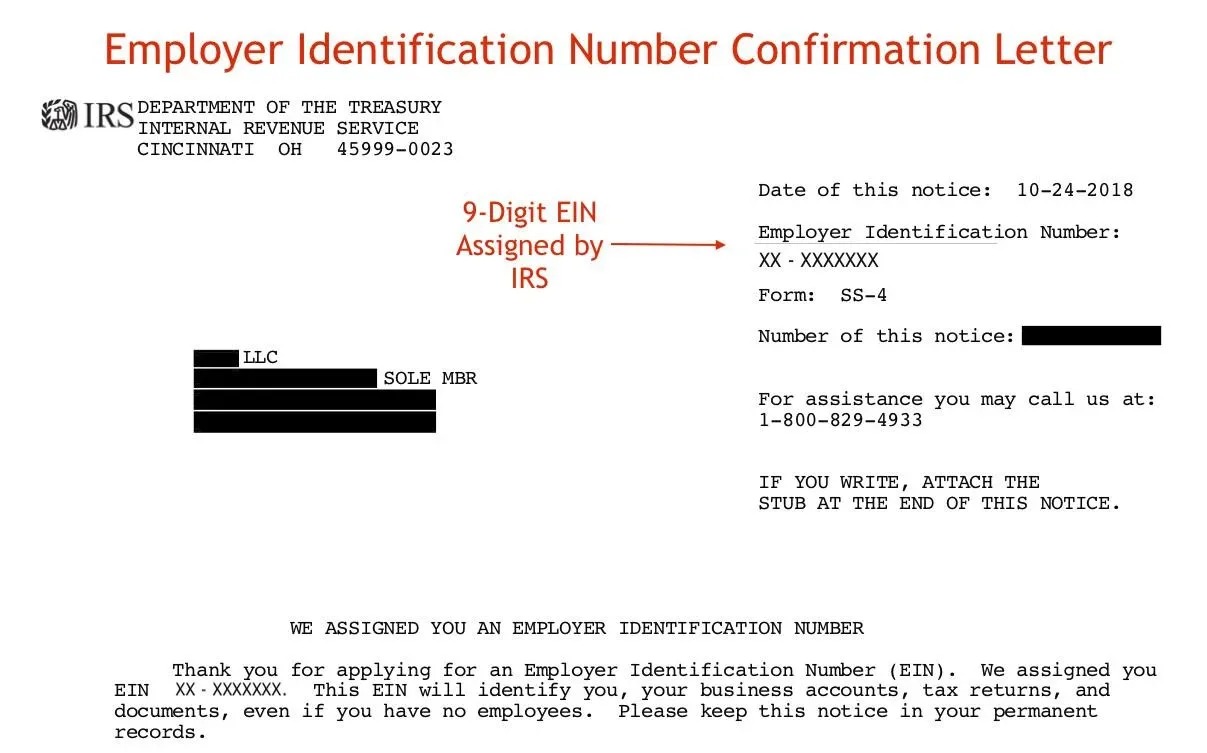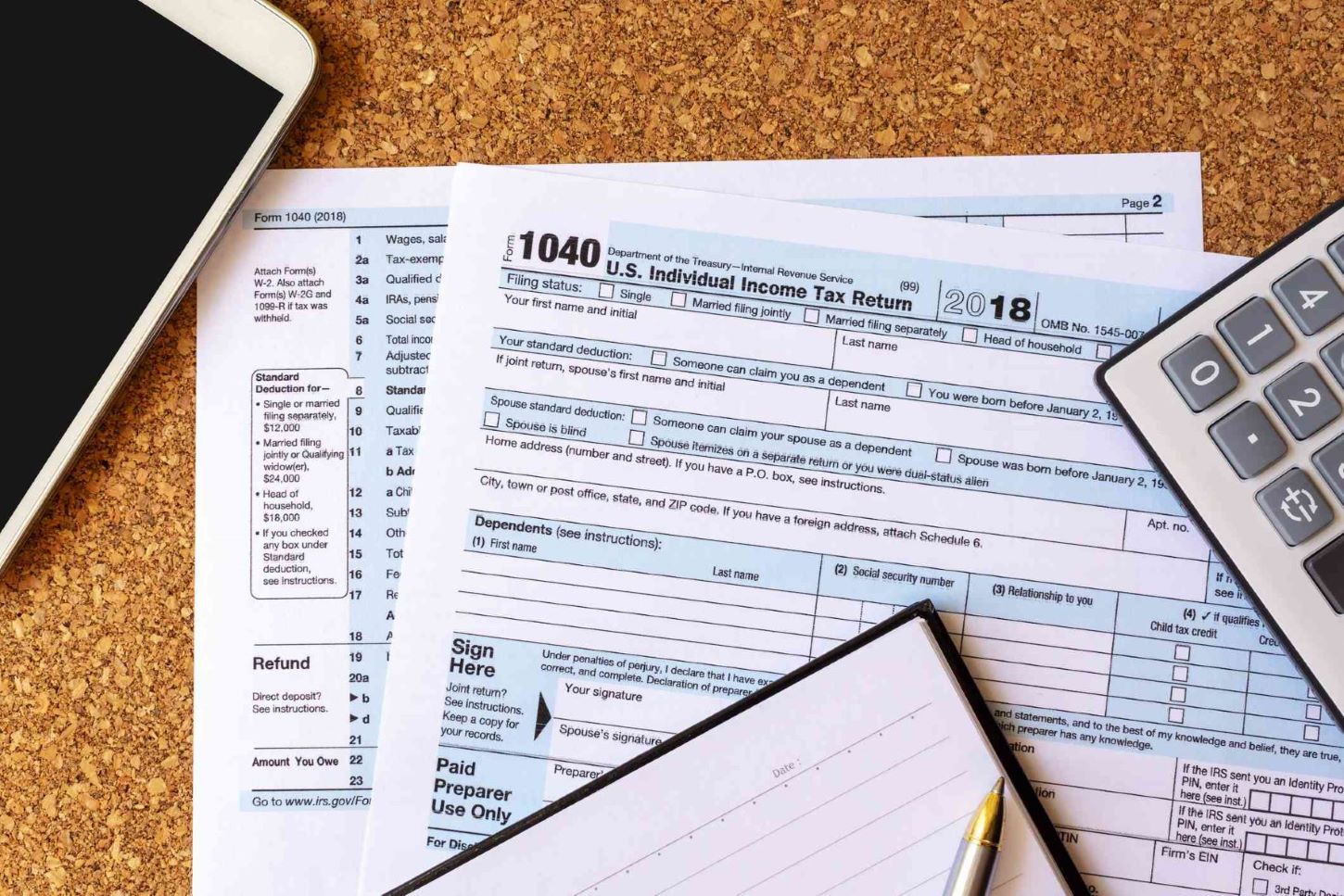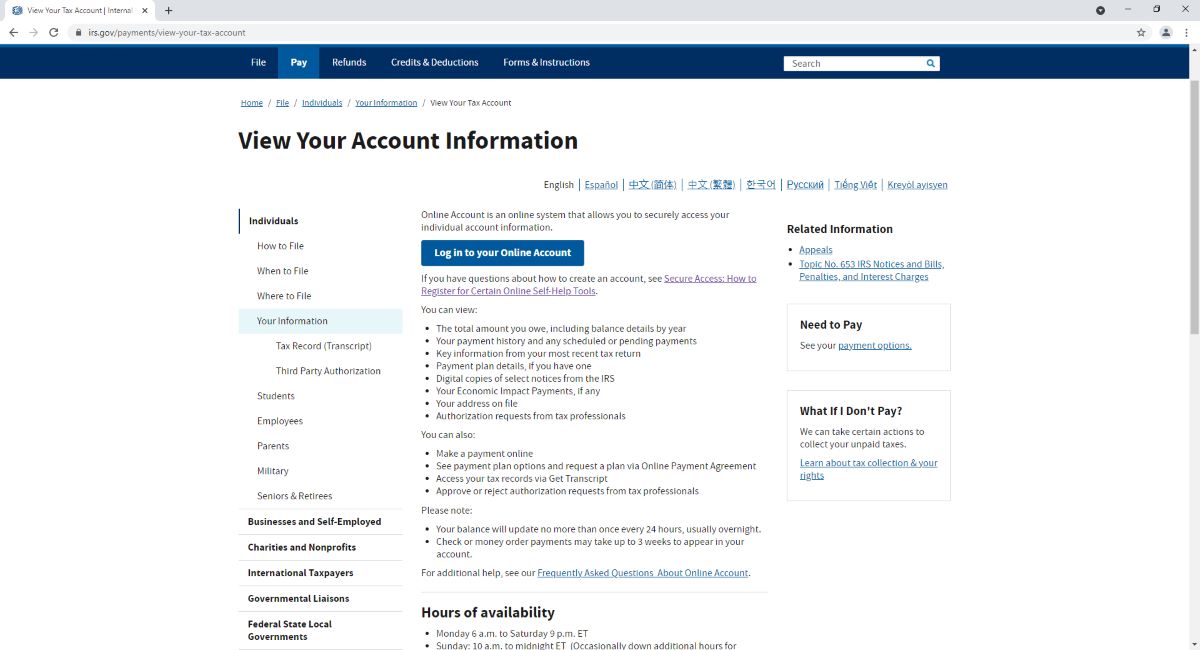

Finance
How Can I Work For The IRS?
Modified: February 21, 2024
Looking for a career in finance? Learn how you can work for the IRS and explore exciting opportunities in the financial sector.
(Many of the links in this article redirect to a specific reviewed product. Your purchase of these products through affiliate links helps to generate commission for LiveWell, at no extra cost. Learn more)
Table of Contents
Introduction
Have you ever wondered how you can work for the Internal Revenue Service (IRS)? If you have a passion for finance and a desire to serve the public, a career at the IRS might be the perfect fit for you. As the nation’s tax collection agency, the IRS plays a vital role in ensuring tax compliance and administering tax laws. Working at the IRS offers a unique opportunity to contribute to the financial well-being of individuals and businesses, while also gaining valuable skills and experience in the field of finance.
Working for the IRS comes with a range of benefits, including competitive salaries, comprehensive benefits, and ample opportunities for career advancement. The agency values diversity and offers a wide variety of career paths, from tax law enforcement to customer service, IT support, accounting, and more. Whether you’re a recent graduate looking to start your career or a seasoned professional seeking a new challenge, the IRS provides a supportive and stimulating work environment.
In this article, we will explore the qualifications and requirements for working at the IRS, the various career paths available, and the steps you can take to pursue a job at the agency. We’ll also delve into the application and interview processes, as well as the training and development opportunities that await you once you join the IRS.
So, if you’re ready to embark on a rewarding career in finance and make a difference in the lives of millions of taxpayers, continue reading to discover how you can work for the IRS.
Qualifications and Requirements for Working at the IRS
Working at the IRS requires certain qualifications and requirements to ensure that employees have the necessary knowledge and skills to carry out their responsibilities effectively. While specific requirements may vary depending on the position, there are some general qualifications that apply across the board.
First and foremost, a strong educational background is often a requirement for working at the IRS. Many positions at the agency, especially those in specialized roles such as tax law enforcement or accounting, necessitate a bachelor’s degree in a related field such as finance, accounting, or business administration. Some positions may even require a master’s degree or specific certifications, such as Certified Public Accountant (CPA) or Enrolled Agent (EA) credentials.
In addition to educational qualifications, the IRS seeks individuals with relevant work experience. Prior experience in areas such as finance, accounting, tax law, or customer service can be highly advantageous when applying for a job at the agency. It demonstrates a practical understanding of tax-related issues and the ability to effectively communicate with taxpayers.
Furthermore, strong analytical and problem-solving skills are essential for working at the IRS. As an employee, you will need to interpret and apply complex tax laws, analyze financial data, and resolve taxpayer inquiries and issues. Attention to detail, good organizational skills, and the ability to work well under pressure are crucial in order to accurately process and manage tax-related information.
Given the sensitive nature of the work conducted at the IRS, applicants must also meet certain integrity and character requirements. This includes having a strong ethical foundation, demonstrating honesty and trustworthiness, and maintaining a high level of confidentiality when handling taxpayer information.
Additionally, proficiency in computer technology is essential, as the IRS relies heavily on technology systems to process tax returns, communicate with taxpayers, and enforce tax laws. Familiarity with tax-specific software and the ability to adapt to new technologies are highly valued skills.
Finally, excellent communication and interpersonal skills are critical for working at the IRS. As an employee, you will interact with taxpayers, colleagues, and other stakeholders on a daily basis. The ability to effectively communicate complex tax concepts in a clear and friendly manner is key to providing quality customer service and building positive relationships with taxpayers.
Overall, the qualifications and requirements for working at the IRS encompass a mix of educational background, relevant work experience, technical skills, and personal attributes. Meeting these requirements will help ensure that you are well-equipped to contribute to the mission of the IRS and succeed in your career at the agency.
Career Paths at the IRS
The Internal Revenue Service (IRS) offers a diverse range of career paths, providing employees with the opportunity to pursue their interests and develop their skills in various areas within the agency. Whether you have a background in finance, law enforcement, technology, customer service, or administration, there are numerous paths to explore within the IRS.
One of the most common career paths at the IRS is in tax administration. As a tax administrator, you will play a crucial role in processing tax returns, conducting audits, and ensuring compliance with tax laws. This includes reviewing tax forms, analyzing financial data, and resolving any discrepancies or issues that may arise. Tax administrators work closely with taxpayers, providing guidance and assistance to help individuals and businesses navigate the complexities of the tax system.
Another prominent career path within the IRS is tax law enforcement. As a tax law enforcement officer, you will be responsible for investigating and detecting tax fraud, conducting criminal investigations, and prosecuting tax offenders. This role requires a strong understanding of tax laws and regulations, as well as the ability to gather and analyze evidence, interview witnesses, and collaborate with other law enforcement agencies.
The IRS also offers career opportunities in information technology (IT), where professionals can contribute to the development and maintenance of the agency’s technological infrastructure. From software development to data management and cybersecurity, IT professionals at the IRS play a vital role in ensuring the security and efficiency of the agency’s systems and applications.
For those with a passion for finance and accounting, the IRS offers career paths in financial management. In this role, you will be involved in budget planning, financial analysis, and resource allocation. Financial managers at the IRS help oversee the agency’s financial operations and ensure the responsible use of taxpayer funds.
Customer service is another integral aspect of the IRS, and individuals with strong communication and interpersonal skills can pursue a career path in taxpayer assistance. Customer service representatives at the IRS provide information and assistance to taxpayers, helping them understand their tax obligations, resolve issues, and navigate the various services offered by the agency.
Additionally, the IRS offers career paths in administration and support services. From human resources to procurement, facilities management to legal services, these roles provide crucial support to the overall functioning of the agency.
It’s important to note that advancement opportunities within the IRS are abundant, allowing employees to grow and progress in their careers. From entry-level positions to managerial roles, the potential for professional development is extensive. The agency provides resources and training programs to help employees enhance their skills and knowledge, ensuring they are well-prepared for advancement opportunities.
Ultimately, the IRS offers a wide range of career paths to suit individuals with diverse backgrounds and interests. Whether you choose a path in tax administration, law enforcement, IT, finance, customer service, or administration, working at the IRS provides a dynamic and rewarding career in the field of finance and public service.
Steps to Work for the IRS
If you’re interested in pursuing a career at the Internal Revenue Service (IRS), there are several steps you can take to increase your chances of landing a job with the agency. While the specific process may vary depending on the position you are applying for, the following are general steps that can help guide you towards working for the IRS.
1. Research and Identify Your Desired Position: Start by familiarizing yourself with the various career paths and positions available at the IRS. Research the roles that align with your skills, interests, and qualifications. This will help you focus your efforts and determine which positions to pursue.
2. Meet the Qualifications: Review the qualifications and requirements for your desired position at the IRS. Ensure that you meet the necessary educational requirements, work experience, and any other qualifications specified in the job description. If you lack certain qualifications, consider gaining relevant experience or education to enhance your chances of being considered.
3. Prepare Your Application Materials: Once you have identified your desired position and ensured that you meet the qualifications, prepare your application materials. This typically includes updating your resume, writing a compelling cover letter, and gathering any relevant supporting documents or certifications.
4. Apply Online: Visit the official IRS website or the USA Jobs website, which hosts job postings for various government agencies. Create an account and navigate to the IRS job listings to find positions that interest you. Follow the instructions to complete the online application process, ensuring that you provide all the necessary information and attach your application materials.
5. Complete Required Assessments: Some positions at the IRS may require applicants to complete assessments or exams to demonstrate their knowledge and skills. These assessments may cover areas such as accounting, tax law, or customer service. Be prepared to take and pass any required exams as part of the application process.
6. Await Notification: After submitting your application, you will need to wait for the IRS to review your materials and determine whether you meet the qualifications for the position. If you are selected to move forward in the hiring process, you will be notified by the agency to proceed to the next steps.
7. Participate in Interviews: If you are selected for an interview, this is your opportunity to showcase your skills, experience, and passion for working at the IRS. Be prepared to answer questions that demonstrate your knowledge of tax laws and regulations, your problem-solving abilities, and your ability to work well in a team.
8. Complete Background Checks: As a government agency, the IRS carries out extensive background checks on potential employees. These checks ensure that candidates meet the necessary integrity and character requirements to work in a position of trust. Be prepared to provide relevant information and references during this process.
9. Receive Job Offer and Complete Onboarding: If the IRS determines that you are the ideal candidate for the position, you will receive a job offer. Upon accepting the offer, you will complete the necessary paperwork and go through the onboarding process, which includes orientation, training, and familiarizing yourself with the agency’s policies and procedures.
Keep in mind that the selection process can be competitive, so it’s important to tailor your application materials, showcase your relevant skills and experience, and thoroughly prepare for interviews. With determination, patience, and a commitment to meeting the qualifications, you can increase your chances of successfully working for the IRS.
Applying for a Job at the IRS
When it comes to applying for a job at the Internal Revenue Service (IRS), careful preparation and attention to detail can greatly increase your chances of success. From navigating the application process to crafting a compelling resume and cover letter, here are some key steps to follow when applying for a job at the IRS.
1. Research Available Positions: Begin by exploring the IRS website or USA Jobs website to familiarize yourself with current job openings. Take note of the positions that align with your skills, qualifications, and career goals.
2. Review Job Descriptions: Read the job descriptions thoroughly to understand the specific qualifications, responsibilities, and requirements for each position of interest. Pay attention to the required education, work experience, and any additional certifications or specialized skills.
3. Tailor Your Resume: Customize your resume to highlight your relevant skills, experiences, and achievements. Emphasize any experience you have in finance, accounting, customer service, or other pertinent areas. Use action verbs and quantify your accomplishments to make your resume stand out.
4. Craft a Compelling Cover Letter: Write a cover letter that captures the attention of the hiring manager. Highlight your motivation, passion for public service, and why you are interested in working at the IRS. Connect your skills and experiences to the needs of the position and demonstrate your ability to contribute to the agency’s mission.
5. Follow Application Instructions: Carefully follow the application instructions provided. Ensure that you provide all the necessary information, including your contact details, employment history, educational background, and any other requested documents such as transcripts or certifications.
6. Proofread Your Application: Before submitting your application, review it carefully for any errors or typos. Pay attention to grammar, spelling, and formatting to present a polished and professional application.
7. Complete Pre-Employment Assessments: Depending on the position, you may be required to complete pre-employment assessments or exams. Prepare by familiarizing yourself with the subject matter and practicing sample questions or scenarios relevant to the role.
8. Submit Your Application: Once your application is complete and you have double-checked all the details, submit it through the designated online application system. Save any confirmation or receipt for future reference.
9. Monitor the Application Status: After submitting your application, keep an eye on the status updates provided by the IRS or the USA Jobs website. Check your email regularly for any communication from the agency, including requests for additional information or invitations for interviews.
10. Prepare for Interviews: If you are selected for an interview, prepare by researching the IRS, reviewing common interview questions, and practicing your responses. Showcase your knowledge of tax laws, your problem-solving abilities, and your commitment to public service during the interview process.
Remember, the IRS is a highly competitive employer, so it is crucial to put your best foot forward and stand out from other applicants. Tailor your application materials, highlight your relevant skills and experiences, and showcase your passion for finance and public service in order to increase your chances of securing a job at the IRS.
Interview Process at the IRS
The interview process at the Internal Revenue Service (IRS) is an important step in determining the suitability of candidates for various positions within the agency. It provides an opportunity for the IRS to assess an applicant’s knowledge, skills, and suitability for the role, as well as for the applicant to demonstrate their qualifications, enthusiasm, and ability to contribute to the agency’s mission. Here is an overview of what to expect during the interview process at the IRS.
1. Initial Screening: The first step in the interview process may involve an initial screening, which can be conducted over the phone or through an online platform. This screening helps the IRS evaluate your basic qualifications, such as your education, work experience, and eligibility for employment.
2. Panel Interview: If you pass the initial screening, you may be invited to a panel interview. This type of interview typically involves a panel of IRS employees who will assess your skills, knowledge, and fit for the role. Prepare by researching the position and the IRS, reviewing common interview questions, and practicing your responses.
3. Behavioral-Based Questions: The IRS often employs behavioral-based interview questions, which are designed to assess your past behaviors and experiences in various situations. These questions typically begin with phrases like “Tell me about a time when…” or “Give an example of…”. Be prepared to provide detailed responses that highlight specific examples of your skills, problem-solving abilities, and customer service mindset.
4. Technical Questions: Depending on the position, you may also be asked technical questions related to tax laws, financial management, customer service, or other relevant areas. Study the job description and related materials to prepare for these types of questions. Be ready to demonstrate your knowledge and understanding of key concepts and how you would apply them in the role.
5. Communication and Interpersonal Skills: The IRS places a high value on effective communication and interpersonal skills. During the interview, be prepared to showcase your ability to communicate complex ideas in a clear and concise manner. Demonstrating your capabilities in customer service, teamwork, and conflict resolution can also be beneficial.
6. Questions for the Panel: Towards the end of the interview, you will likely be given an opportunity to ask questions to the panel. Take this opportunity to inquire about the role, team dynamics, training and development opportunities, or any other aspects that you would like to know more about. Asking thoughtful questions demonstrates your genuine interest in the position and your desire to learn more about the agency.
7. Follow-up and Thank You Note: After the interview, it is a good practice to send a follow-up thank you note or email to express your appreciation for the opportunity to interview. This is a chance to reiterate your interest in the position, summarize key points from the interview, and make a positive, lasting impression.
Remember, the interview process at the IRS is designed to assess not just your technical skills and knowledge, but also your fit with the agency’s values and culture. Be prepared, confident, and enthusiastic, and use this opportunity to showcase your skills, experiences, and commitment to providing exceptional service to taxpayers.
Training and Development at the IRS
The Internal Revenue Service (IRS) recognizes the importance of continuous learning and development in the ever-evolving field of tax administration. The agency is committed to providing comprehensive training programs and career development opportunities to its employees, ensuring they have the knowledge and skills necessary to excel in their roles. Here are some key aspects of training and development at the IRS.
1. New Employee Orientation: Upon joining the IRS, new employees typically undergo a comprehensive orientation program. This program familiarizes them with the agency’s mission, values, policies, and procedures. It provides an overview of the various departments and functions within the agency, helping new hires understand how their roles contribute to the overall goals of the IRS.
2. Job-Specific Training: The IRS offers job-specific training to ensure employees have the necessary skills and knowledge to carry out their responsibilities effectively. This training may cover a range of topics, including tax laws and regulations, financial management, customer service, and technology systems used by the agency. The training programs are designed to enhance employees’ competence and confidence in their respective roles, equipping them with the tools they need to succeed.
3. Continuing Education: The IRS places a strong emphasis on continuing education to keep employees abreast of the latest developments in tax laws and regulations. The agency provides opportunities for employees to attend workshops, seminars, conferences, and webinars. This allows them to stay updated on changes in tax codes, emerging trends, and best practices in tax administration.
4. Career Development Programs: The IRS offers a variety of career development programs to help employees advance within the agency. These programs include mentorship initiatives, leadership development programs, and rotational assignments. By participating in these programs, employees can expand their skill sets, gain new experiences, and prepare themselves for leadership positions within the IRS.
5. Professional Certifications: The IRS encourages and supports employees in obtaining professional certifications relevant to their roles. Certifications such as Certified Public Accountant (CPA), Enrolled Agent (EA), and Certified Fraud Examiner (CFE) can enhance employees’ credibility and expertise in areas such as tax preparation, auditing, and financial investigations.
6. Online Learning Resources: The IRS provides access to online learning resources to facilitate self-paced learning and development. Employees can access a variety of e-learning courses, videos, and other educational materials to enhance their knowledge and skills. These resources cover a wide range of topics, including tax law updates, customer service techniques, IT systems usage, and professional development.
7. Tuition Assistance Programs: To support employees’ professional growth, the IRS offers tuition assistance programs. Eligible employees may receive financial support for pursuing formal education or advanced degree programs related to their roles at the agency. This helps employees enhance their expertise and positions them for future career advancement opportunities.
Training and development at the IRS are ongoing processes that reflect the agency’s commitment to fostering a skilled and knowledgeable workforce. By investing in the development of its employees, the IRS ensures that they are equipped to deliver high-quality service to taxpayers and navigate the complex field of tax administration.
Benefits of Working for the IRS
Working for the Internal Revenue Service (IRS) comes with a host of benefits, making it an attractive choice for individuals seeking a rewarding career in finance and public service. The agency offers a range of benefits that promote work-life balance, provide financial security, and support employees’ professional growth. Here are some key benefits of working for the IRS:
1. Competitive Compensation: The IRS offers competitive salaries, allowing employees to earn a fair and stable income. Salaries are determined by factors such as job responsibilities, qualifications, and experience. The agency also provides regular pay increases and promotions based on performance and career progression.
2. Comprehensive Health Care: Employees at the IRS have access to comprehensive health care coverage, including medical, dental, and vision plans. These plans ensure that employees and their families receive the necessary medical care, preventive services, and prescription medications.
3. Retirement Savings Plan: The IRS provides a generous retirement savings plan, allowing employees to save for their future. The agency offers both a defined benefit plan and a Thrift Savings Plan (TSP), similar to a 401(k) plan, which allows employees to contribute a portion of their salary into a retirement account with tax advantages.
4. Paid Time Off: The IRS recognizes the importance of work-life balance and provides generous paid time off (PTO) benefits. Employees receive annual leave, sick leave, and federal holidays off, allowing them to rest, recharge, and spend time with their loved ones.
5. Flexible Work Arrangements: The agency promotes flexible work arrangements, such as telework and flexible scheduling, when feasible. This flexibility allows employees to balance their personal and professional lives more effectively, leading to increased job satisfaction and work productivity.
6. Training and Development Opportunities: The IRS invests in the training and development of its employees. It offers extensive training programs, continuing education opportunities, and career development initiatives to enhance employees’ skills, knowledge, and professional growth.
7. Workforce Diversity and Inclusion: The IRS values diversity and strives to create an inclusive and equitable work environment. Employee resource groups and diversity programs are in place to foster an atmosphere of respect, collaboration, and understanding.
8. Employee Assistance Programs: The IRS provides employee assistance programs that offer confidential support and counseling services to employees and their families. These programs address a range of personal and work-related challenges, ensuring employees have access to the assistance they may need.
9. Commuter Benefits: The agency offers commuter benefits, including transit subsidies or parking reimbursement, to help employees offset commuting costs and promote environmentally-friendly transportation options.
10. Job Security and Advancement Opportunities: The IRS provides employees with job security, along with ample opportunities for career advancement. The agency recognizes and rewards exceptional performance, offering employees the chance to take on new responsibilities and progress in their careers.
These are just some of the many benefits of working for the IRS. With its commitment to employee well-being, professional development, and work-life balance, the agency offers a fulfilling and rewarding career path for those interested in finance, tax administration, and public service.
Conclusion
Working for the Internal Revenue Service (IRS) offers a unique opportunity to merge a passion for finance with a commitment to public service. Throughout this article, we have explored the qualifications, career paths, application process, interview process, and training and development opportunities that await those interested in pursuing a career at the IRS.
The IRS provides a range of benefits that promote financial security, work-life balance, and professional growth. From competitive salaries and comprehensive healthcare plans to generous retirement savings and paid time off, the agency recognizes the importance of supporting its employees’ well-being. The IRS also invests in the training and development of its workforce, ensuring that employees have the necessary skills and knowledge to excel in their roles.
Career paths at the IRS are diverse, spanning tax administration, law enforcement, information technology, financial management, customer service, and various administrative functions. The agency values diversity and offers numerous opportunities for advancement, allowing employees to grow and progress in their careers.
Applying for a job at the IRS requires careful preparation, attention to detail, and a genuine passion for public service. By tailoring your application materials, showcasing your relevant skills and experiences, and thoroughly preparing for interviews, you can increase your chances of securing a position at the IRS.
Working for the IRS is not just about collecting taxes; it is about ensuring the financial well-being of individuals and businesses, promoting tax compliance, and serving the public. It is a chance to make a real impact in the lives of taxpayers and contribute to the nation’s financial stability.
So, if you have a passion for finance, a dedication to public service, and a desire to continuously learn and grow, consider a career at the IRS. Join the thousands of individuals who work tirelessly to uphold tax laws, provide exemplary customer service, and shape the future of tax administration. Start your journey with the IRS today and embark on a rewarding and fulfilling career that combines finance and public service in a way that few other organizations can offer.

